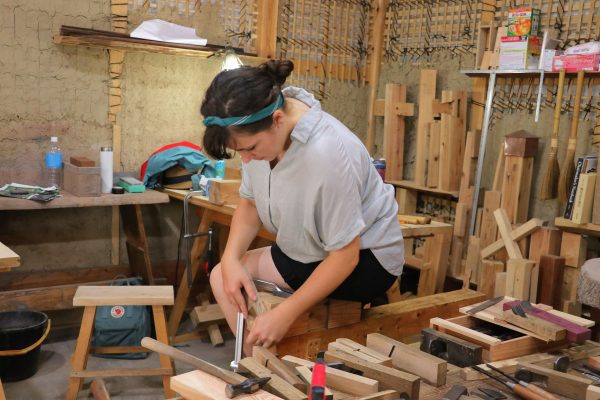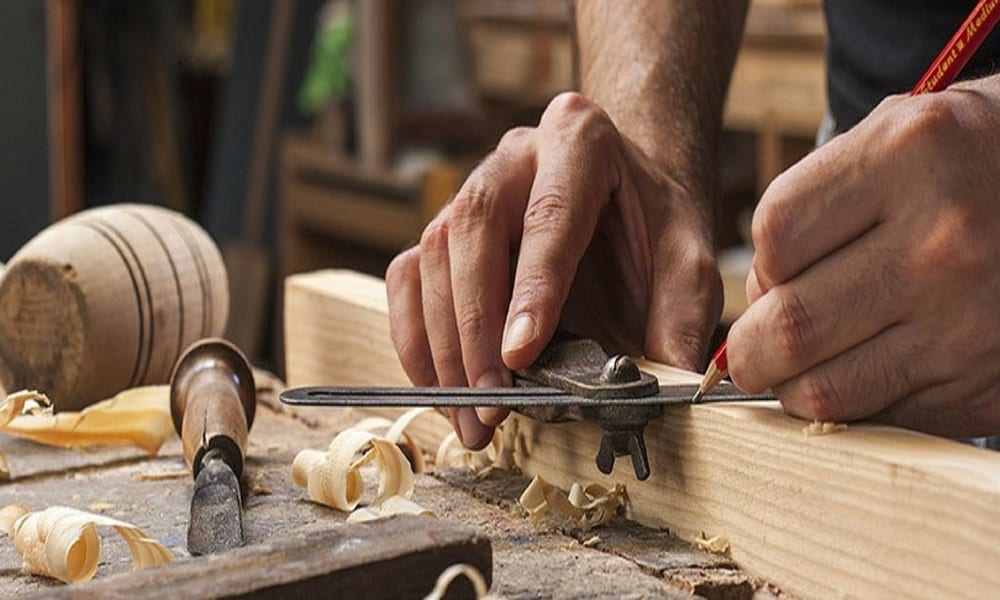Woodworking is a fulfilling hobby that allows you to create beautiful and functional pieces of furniture from scratch. If you are a beginner, it might seem intimidating at first, but with the right guidance and practice, you can master the art of woodworking and start crafting your own furniture. In this article, we will guide you through the essential steps and techniques to get started.
1. Set Up Your Workspace
Before diving into woodworking, it is important to set up a dedicated workspace where you can work safely and comfortably. Choose a well-ventilated area with sufficient lighting and a sturdy workbench. Make sure you have all the necessary tools and equipment, including safety goggles, ear protection, and dust masks.
2. Learn the Basics of Woodworking
Begin by familiarizing yourself with the basic concepts of woodworking. Learn about different types of wood, their characteristics, and uses. Understand how to properly measure and mark your wood, and how to use essential tools such as saws, chisels, and planes. Research woodworking techniques like joinery and sanding to enhance your skills.
3. Start with Simple Projects
It is recommended for beginners to start with simple projects to gain confidence and experience. Begin by constructing small items like a cutting board or a wooden box. As you progress, you can move on to more complex projects like building a coffee table or a bookshelf. Remember to start with a detailed plan and take accurate measurements before cutting your wood.
4. Practice Proper Safety Measures
Safety should always be a top priority when working with woodworking tools. Make sure to wear appropriate safety gear and follow safety guidelines for each tool. Keep your workspace clean and organized to avoid accidents. Take your time and work at a comfortable pace, avoiding distractions that can lead to mistakes.
5. Learn from Experienced Woodworkers

Join a woodworking community or take a class to learn from experienced woodworkers. They can provide valuable insights, tips, and tricks to enhance your skills. Additionally, there are numerous online resources, forums, and tutorials available that can help you expand your knowledge and learn new techniques.
6. Experiment and Refine Your Skills
Woodworking is a continuous learning process. As you gain more experience, don’t be afraid to experiment with different techniques and designs. Take on challenging projects that push your limits and allow you to grow as a woodworker. Refine your skills by practicing regularly and seeking feedback from others.
7. Enjoy the Process
Woodworking is not just about the end result; it is also about the joy of creating something with your own hands. Embrace the process, enjoy the satisfaction of seeing your ideas come to life, and appreciate the beauty of the natural materials you are working with. Woodworking can be a therapeutic and rewarding hobby that allows you to express your creativity.
Woodworking for beginners is an exciting journey that opens up a world of possibilities for creating your own furniture. With the right tools, knowledge, and practice, you can achieve remarkable results. Remember to start small, prioritize safety, seek guidance from experienced woodworkers, and most importantly, enjoy the process. Happy woodworking!

